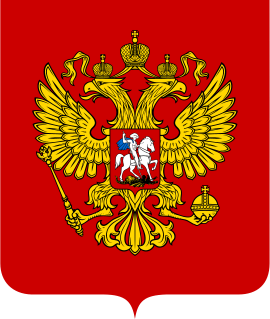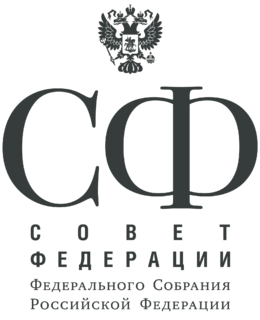
The politics of Russia take place in the framework of the federal semi-presidential republic of Russia. According to the Constitution of Russia, the President of Russia is head of state, and of a multi-party system with executive power exercised by the government, headed by the Prime Minister, who is appointed by the President with the parliament's approval. Legislative power is vested in the two houses of the Federal Assembly of the Russian Federation, while the President and the government issue numerous legally binding by-laws.

Politics of the United Arab Emirates takes place in a framework of a federal, presidential, and a constitutional monarchy. The United Arab Emirates (UAE) is a federation of seven constituent monarchies: the Emirates of Abu Dhabi, Ajman, Dubai, Fujairah, Ras al-Khaimah, Sharjah, and Umm al-Quwain. According to convention, the ruler of Abu Dhabi is the President of the United Arab Emirates and the head of state, and the ruler of Dubai is the Prime Minister of the United Arab Emirates, the head of the government.
An independent city or independent town is a city or town that does not form part of another general-purpose local government entity.
A federal republic is a federation of states with a republican form of government. At its core, the literal meaning of the word republic when used to reference a form of government means: "a country that is governed by elected representatives and by an elected leader rather than by a king or queen".
Devolution is the statutory delegation of powers from the central government of a sovereign state to govern at a subnational level, such as a regional or local level. It is a form of administrative decentralization. Devolved territories have the power to make legislation relevant to the area.

Russia is divided into several types and levels of subdivisions.
A federated state is a territorial and constitutional community forming part of a federation. Such states differ from fully sovereign states, in that they do not have full sovereign powers, as the sovereign powers have been divided between the federated states and the central or federal government. Importantly, federated states do not have standing as entities of international law. Instead, the federal union as a single entity is the sovereign state for purposes of international law. Depending on the constitutional structure of a particular federation, a federated state can hold various degrees of legislative, judicial and administrative jurisdiction over a defined geographic territory and is a form of regional government.
A federal district is a type of administrative division of a federation, usually under the direct control of a federal government and organized sometimes with a single municipal body. Federal districts often include capital districts, and they exist in various countries worldwide.
A federal prison is operated under the jurisdiction of a federal government as opposed to a state or provincial body. Federal prisons are used for convicts who violated federal law, inmates considered dangerous (Brazil), or those sentenced to longer terms of imprisonment (Canada). Not all federated countries have a legal concept of "federal prison".

The ten cantons of the Federation of Bosnia and Herzegovina, are the member states of the Federation of Bosnia and Herzegovina, one of the two political entities of Bosnia and Herzegovina. The ten cantons were established by the Law on Federal Units (Cantons) on 12 June 1996.
Constituent state is a state entity that constitutes a part of a sovereign state. A constituent state holds regional jurisdiction over a defined administrative territory, within a sovereign state. Government of a constituent state is a form of regional government. Throughout history, and also in modern political practice, most constituents states are parts of complex states, like federations or confederations. Constituent state can have republican or monarchical form of government. Those of republican form are usually called states or autonomous states, republics or autonomous republics, and also cantons. Those that have monarchical form of government are often defined by traditional hierarchical rank of their ruler.
A federal territory is an area under the direct and usually exclusive jurisdiction of a federation's central or national government. A federal territory is an area that is part of a federation but not part of any federated state. The federated states constitute the federation itself and share sovereignty with the federal government, while a territory does not have sovereign status.
A province is almost always an administrative division within a country or state. The term derives from the ancient Roman provincia, which was the major territorial and administrative unit of the Roman Empire's territorial possessions outside Italy. The term province has since been adopted by many countries. In some countries with no actual provinces, "the provinces" is a metaphorical term meaning "outside the capital city".
A law enforcement agency (LEA), in North American English, is a government agency responsible for the enforcement of the laws.
A territory is an administrative division, usually an area that is under the jurisdiction of a state. In most countries, a territory is an organized land controlled division of an area that is controlled by a country but is not formally developed into, or incorporated into, a political unit of the country that is of equal status to other political units that may often be referred to by words such as "provinces" or "states". In international politics, a territory is usually a non-sovereign geographic area which has come under the authority of another government; which has not been granted the powers of self-government normally devolved to secondary territorial divisions; or both.

The Chairman of the Federation Council of the Federal Assembly of the Russian Federation, also called Speaker (спикер), is the presiding officer of the Upper house of the Russian parliament. It is the third highest position, after the President and the Prime Minister, in the government of Russia. In the case of incapacity of the President and Prime Minister, the chairman of the Federation Council becomes Acting President of Russia.






